
John Berger drawing a portrait of Tilda Swinton (detail)
Writers, Singular and Universal
A writer is one who, when we encounter their words, invites us to another use of language. Their words may be our words, but their voice makes them other. A writer, then, walks a tightrope between the singular and the universal, and the best of them are so adept at it that their work may be described simply as ‘singular universal’. It is such writers that I aim to honour in this series.

John Berger in his kitchen, 1
This and all other images of John Berger are screenshots from the DVD ‘The Seasons in Quincy: Four Portraits of John Berger’ (Curzon Articial Eye, 2017)
JOHN BERGER, OR ATTENTIVENESS
Certain people impress us by the quality of their regard. In the first instance, by the attention they bestow on what they encounter, be it a face, a leaf or a stone, a person, a tree or a mountain. In the second instance, by the concern the object of their regard arouses, the care that comes from the attunement of eye, mind, heart and soul. And finally, by the esteem—be it high or low—that the object of their regard elicits. John Berger was such a person. While John is no longer with us (he died on 2 January 2017), the quality of the regard that was his is, given the ravages of hyperconsumerism, one we’d do well to cultivate. Indeed, the attentiveness, lucidity and care that characterized John’s every encounter, the humanity that fueled his militancy, are qualities that need to be continually reincarnated if silence is to withstand the scream of consumerism.
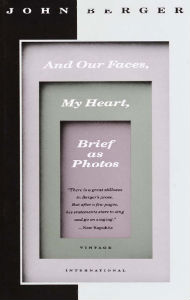
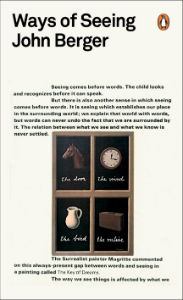

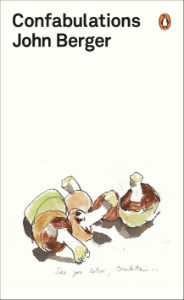
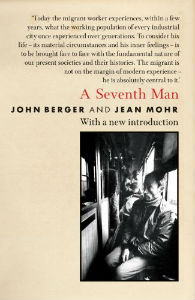
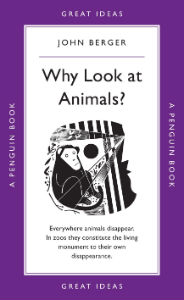
A selection of John Berger’s essays and reflections
In 1517, Luther nailed a list of 95 complaints about ecclesiastical corruption to the church door in Wittenberg. I’ll be satisfied with nailing five—not of ecclesiastical corruption, but of all that undermines attentiveness, lucidity and care—to the door of Our Lady of Perpetual Consumption.
1. Sensation has overpowered sense: memory and imagination suffer instant gratification.
2. Know-how has conquered know-why: technique trumps ideal; economics, politics.
3. Commoditization recognizes no limits: having trumps being; consumer, citizen.
4. Mass customization disguises mass conformity: identity kills individuality; outer ascription, inner direction; narcissism, pride.
5.Thinking is reduced to calculation, ethics to self-interest: recognition and self-satisfaction supersede adventure and courage.

John Berger in his kitchen, 2
Pick up any book by John Berger. Rejoice in the fresh air of free thinking, surprise yourself with the expansiveness of your emotions, take pride in exercising your mind. Read To the Wedding, cast confetti on the bride and groom and regret that you waited so long to leave the beaten path of bestseller conformity. Read And Our Faces, My Heart, Brief as Photos and retrieve a long-lost silence and stillness, a light that illuminates before it heats. Read Portraits: John Berger on Artists and feel how his responses to artworks enlarge yours, how his intimacy with the mystery of art-making sharpens your vision.
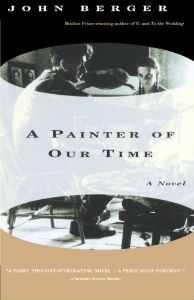

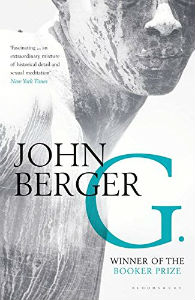

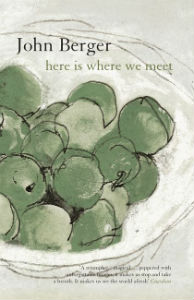
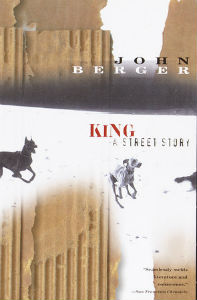
A selection of John Berger’s fiction
Attentiveness, vigilance, the holiness of the spirit; lucidity, courage, the responsibility of risk: All John Berger’s work derives from and is informed by this. In a world where both art and essay are increasingly drawn into the hyperconsumerist machine, his work is a beacon of resistance: in its humility, it heightens our humanity.
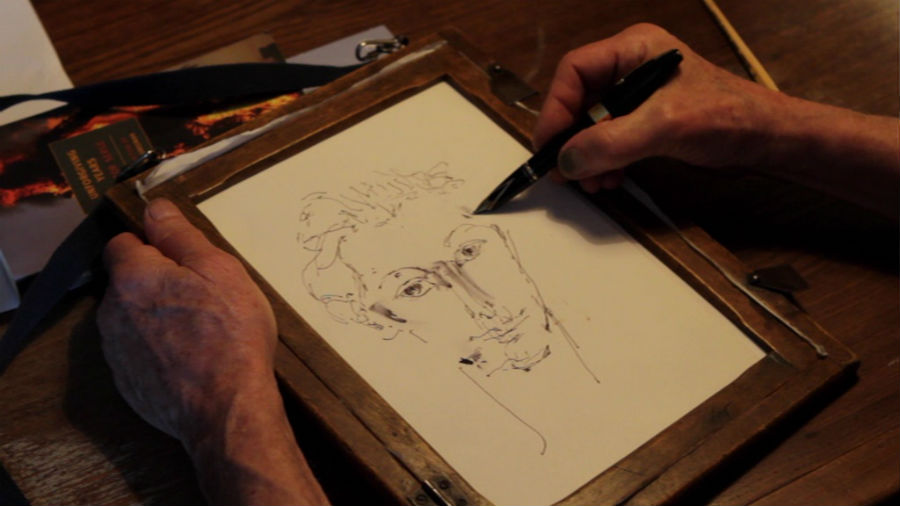
John Berger drawing a portrait of Tilda Swinton
By Richard Jonathan | © Mara Marietta Culture Blog, 2021| All rights reserved
Comments